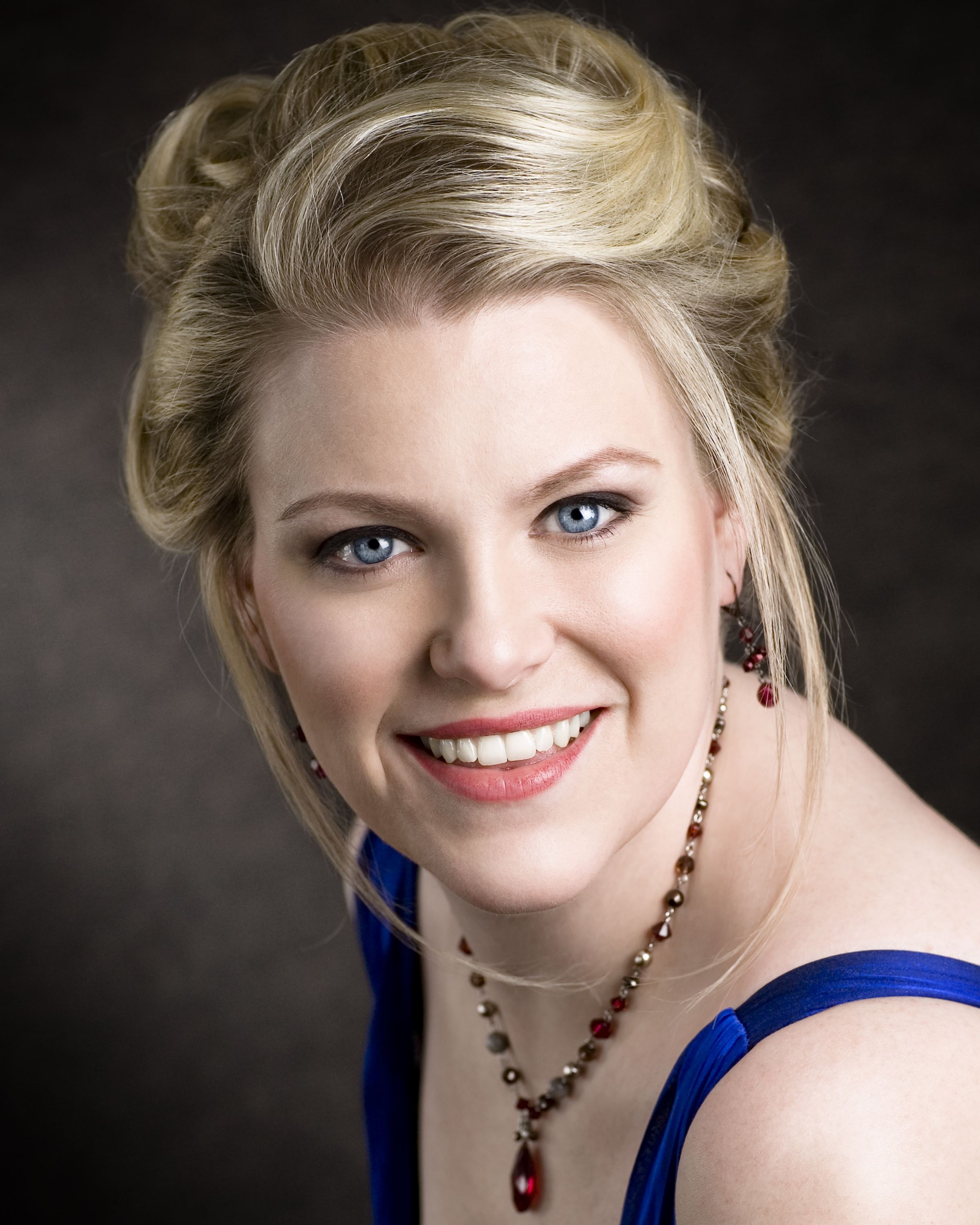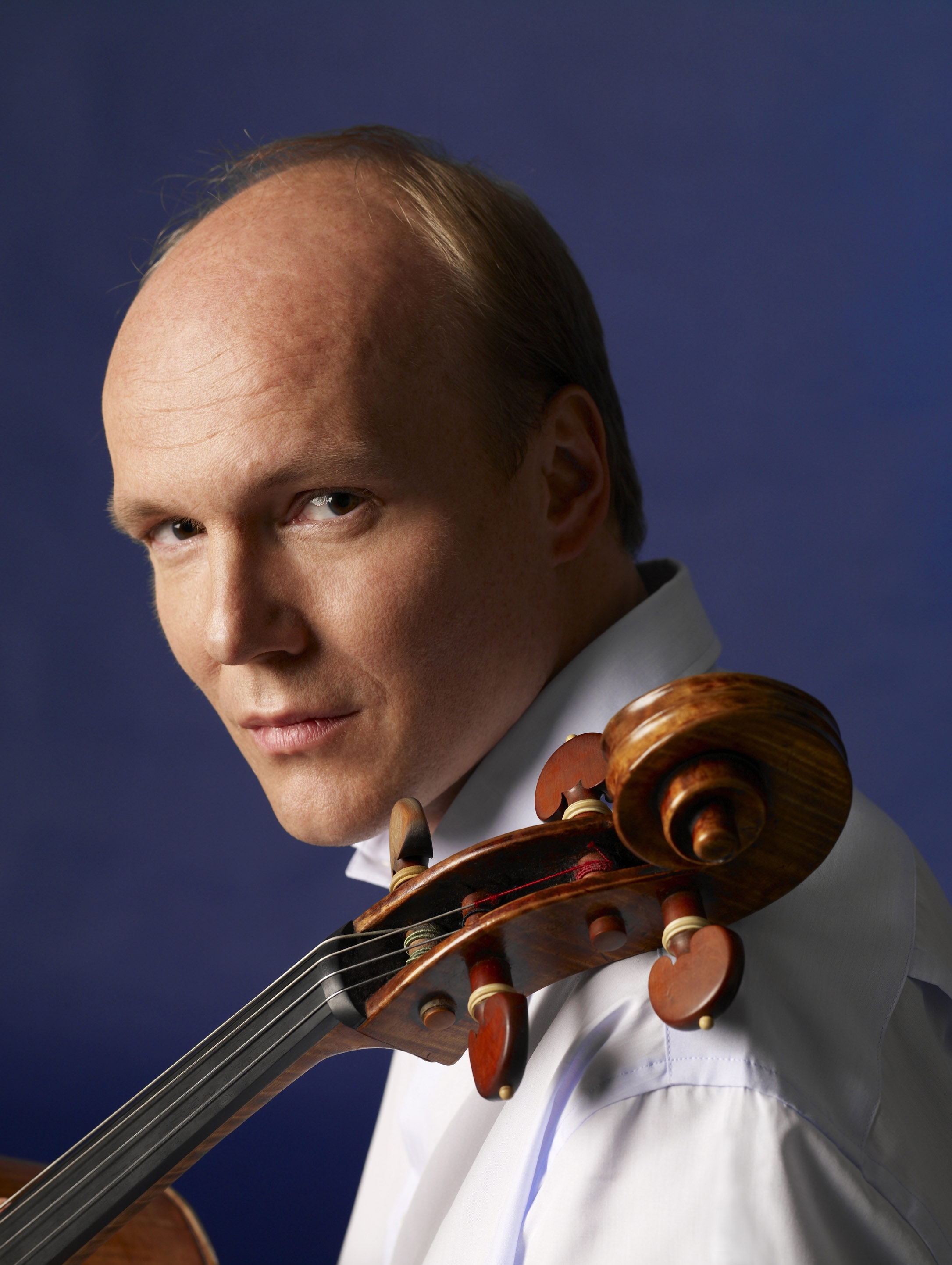Wall, Mørk, Melbourne Symphony Orchestra, Davis, Usher Hall, Edinburgh | reviews, news & interviews
Wall, Mørk, Melbourne Symphony Orchestra, Davis, Usher Hall, Edinburgh
Wall, Mørk, Melbourne Symphony Orchestra, Davis, Usher Hall, Edinburgh
Heartfelt Schumann outplays heavyweight Strauss and lunatic Grainger
The Melbourne Symphony Orchestra’s Edinburgh Festival debut was the most telling example yet of the 2014 festival’s disregard for conventional concert programming. A programme that began with Strauss’ Don Juan and Four Last Songs could easily have settled into a comfortable evening of large scale late romantics, but instead turned on its heel to dip into Schumann’s Cello Concerto before concluding with Percy Grainger’s riotous The Warriors.
That it happened at all, I was told by my neighbour Michael Shmith (sic), critic from the Melbourne Age, is down to a determined act of philanthropy by “some very rich people sitting over there”, namely Harold Mitchell Esq and the Duke of Bucchleuch. During their stay in Scotland the Australian musicians have been staying as guests of the duke, which must have increased his breakfast bill considerably as there are a heck of a lot of them.
Quite what moved these people to pay for this concert I do not know, but if it means that Scottish audiences hereafter demand more frequent performances of The Warriors that is no bad thing. But more of that later. The evening began with Don Juan by Richard Strauss, the first of his great tone poems, here propelled into a vivacious performance by the irrepressible Sir Andrew Davis, the orchestra’s Chief Conductor since 2013. The Melbourne strings don’t have the luscious richness you might expect from the great European orchestras but the horns sounded magnificent and the leader Dale Barltrop played his violin solo exquisitely.

During the interval I overheard members of the audience worrying about the second half. A conservative lot, they were perplexed by the prospect of another soloist taking the floor for a concerto, but most of all they were wondering what on earth lay in store thereafter, for the stage was set with an immense battery of percussion and three pianos. My neighbour on the other side didn’t hang around to find out.
The orchestra was whittled down to chamber size (with a different leader) for Schumann’s Cello Concerto, with the Norwegian Truls Mørk (pictured below) as soloist. This lovely piece, not often enough heard, received at his hands an extraordinary, heartfelt performance.

That this was the undoubted high point, musically, of the evening, is not to deny that in terms of pure theatre Percy Grainger’s The Warriors stole the show. “It’s a crazy piece,” said my informant from the Melbourne Age. The full orchestra was restored, with three pianos, enough percussion to sink a battleship, harps, and celeste. All this for a bit of very noisy fluff that lasts around 20 minutes. No wonder performances are rare.
Can it be described? It opens with a huge flourish, pianos and percussion going hell for leather, before drifting into a somewhat louche episode with hints of Broadway. The piece is meant to depict warrior dances and amorous episodes but in overall intent it comes closer to the overtly comic Grand Grand Overture by Malcolm Arnold (that's the one with a part for vacuum cleaners). There’s a passage that sounds like Gershwin on speed, a hat-doff to Mahler and a lovely but rather corny moment when a string melody drifts above massed tremulous percussion, with the pianists tickling their strings with drum sticks. At one point half the brass walk off to sound an off-stage fanfare that bears no relation to anything. And then its all over in a great whumph of sound that brought the house down. The encore of Handel in the Strand, orchestrated by Sir Henry Wood, was every bit as fun. There must now be two and a half thousand new Grainger fans. The Melbourne critic, incidentally, thought the orchestra sounded much better here than at home. "It will have done them a power of good to get out a bit", he said.
rating
Explore topics
Share this article
Add comment
The future of Arts Journalism
You can stop theartsdesk.com closing!
We urgently need financing to survive. Our fundraising drive has thus far raised £49,000 but we need to reach £100,000 or we will be forced to close. Please contribute here: https://gofund.me/c3f6033d
And if you can forward this information to anyone who might assist, we’d be grateful.

Subscribe to theartsdesk.com
Thank you for continuing to read our work on theartsdesk.com. For unlimited access to every article in its entirety, including our archive of more than 15,000 pieces, we're asking for £5 per month or £40 per year. We feel it's a very good deal, and hope you do too.
To take a subscription now simply click here.
And if you're looking for that extra gift for a friend or family member, why not treat them to a theartsdesk.com gift subscription?
more Classical music
 Kilsby, Parkes, Sinfonia of London, Wilson, Barbican review - string things zing and sing in expert hands
British masterpieces for strings plus other-worldly tenor and horn - and a muscular rarity
Kilsby, Parkes, Sinfonia of London, Wilson, Barbican review - string things zing and sing in expert hands
British masterpieces for strings plus other-worldly tenor and horn - and a muscular rarity
 From Historical to Hip-Hop, Classically Black Music Festival, Kings Place review - a cluster of impressive stars for the future
From quasi-Mozartian elegance to the gritty humour of a kitchen inspection
From Historical to Hip-Hop, Classically Black Music Festival, Kings Place review - a cluster of impressive stars for the future
From quasi-Mozartian elegance to the gritty humour of a kitchen inspection
 Shibe, LSO, Adès, Barbican review - gaudy and glorious new music alongside serene Sibelius
Adès’s passion makes persuasive case for the music he loves, both new and old
Shibe, LSO, Adès, Barbican review - gaudy and glorious new music alongside serene Sibelius
Adès’s passion makes persuasive case for the music he loves, both new and old
 Anja Mittermüller, Richard Fu, Wigmore Hall review - a glorious hall debut
The Austrian mezzo shines - at the age of 22
Anja Mittermüller, Richard Fu, Wigmore Hall review - a glorious hall debut
The Austrian mezzo shines - at the age of 22
 First Person: clarinettist Oliver Pashley on the new horizons of The Hermes Experiment's latest album
Compositions by members of this unusual quartet feature for the first time
First Person: clarinettist Oliver Pashley on the new horizons of The Hermes Experiment's latest album
Compositions by members of this unusual quartet feature for the first time
 Gesualdo Passione, Les Arts Florissants, Amala Dior Company, Barbican review - inspired collaboration excavates the music's humanity
At times it was like watching an anarchic religious procession
Gesualdo Passione, Les Arts Florissants, Amala Dior Company, Barbican review - inspired collaboration excavates the music's humanity
At times it was like watching an anarchic religious procession
 Classical CDs: Camels, concrete and cabaret
An influential American composer's 90th birthday box, plus British piano concertos and a father-and-son duo
Classical CDs: Camels, concrete and cabaret
An influential American composer's 90th birthday box, plus British piano concertos and a father-and-son duo
 Cockerham, Manchester Camerata, Sheen, Martin Harris Centre, Manchester review - re-enacting the dawn of modernism
Two UK premieres added to three miniatures from a seminal event of January 1914
Cockerham, Manchester Camerata, Sheen, Martin Harris Centre, Manchester review - re-enacting the dawn of modernism
Two UK premieres added to three miniatures from a seminal event of January 1914
 Kempf, Brno Philharmonic, Davies, Bridgewater Hall, Manchester review - European tradition meets American jazz
Bouncing Czechs enjoy their Gershwin and Brubeck alongside Janáček and Dvořák
Kempf, Brno Philharmonic, Davies, Bridgewater Hall, Manchester review - European tradition meets American jazz
Bouncing Czechs enjoy their Gershwin and Brubeck alongside Janáček and Dvořák
 Solomon, OAE, Butt, QEH review - daft Biblical whitewashing with great choruses
Even a top soprano and mezzo can’t make this Handel paean wholly convincing
Solomon, OAE, Butt, QEH review - daft Biblical whitewashing with great choruses
Even a top soprano and mezzo can’t make this Handel paean wholly convincing
 Two-Piano Gala, Kings Place review - shining constellations
London Piano Festival curators and illustrious friends entertain and enlighten
Two-Piano Gala, Kings Place review - shining constellations
London Piano Festival curators and illustrious friends entertain and enlighten
 Echo Vocal Ensemble, Latto, Union Chapel review - eclectic choral programme garlanded with dance
Beautiful singing at the heart of an imaginative and stylistically varied concert
Echo Vocal Ensemble, Latto, Union Chapel review - eclectic choral programme garlanded with dance
Beautiful singing at the heart of an imaginative and stylistically varied concert

Comments
Christopher Lambton